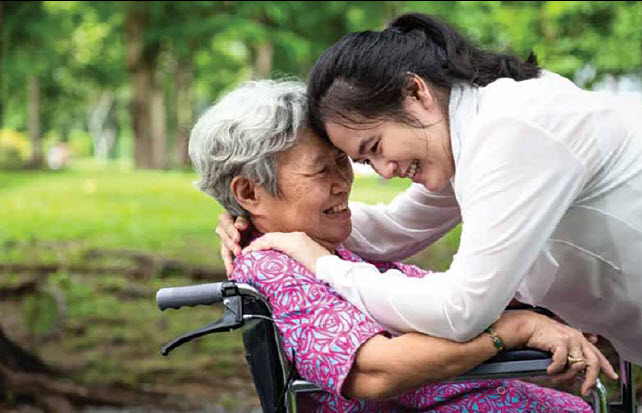 By: Jackie Warner
By: Jackie Warner
Just as you start to understand who you are and the purpose you were meant for in this life, there comes another shift in understanding the expectations and responsibilities. We are given tools as a child to use for our future success. We are bathed, clothed, nurtured, and loved from the infant stages to adulthood by our parents, grandparents, older siblings, and guardians. My question to you is: How did you use it for your life today?
When I am speaking at youth group events, one of the statements I often share with students as a way to encourage them to think beyond the present and look at what it will take to live tomorrow, is – “It is what you do today that will determine how you live tomorrow. So if you want to live well, you have to start making the right choices today.” As I continue my presentation, I share with the students that one day there will be a role reversal, and I ask them if they will truly be prepared to handle it.
 The role reversal I speak of is when parents and siblings are the ones that now have to be taken care of. I go on to ask the students if they will be prepared to take care of the aging elderly or unexpected illnesses of a sibling. It is not easy seeing our siblings and parents need care and assistance, for it is difficult to see them start to fade, become frail and sometimes helpless when it comes to their normal day to day routine. It is an emotional roller coaster for both you and them. You start to ask yourself: “How do I do this? Am I mentally prepared, not to mention financially stable enough, to handle what may come next as I support them.” What physical and emotional support will be required? It is not an easy path to navigate, so if you have not started preparations, then start now.
The role reversal I speak of is when parents and siblings are the ones that now have to be taken care of. I go on to ask the students if they will be prepared to take care of the aging elderly or unexpected illnesses of a sibling. It is not easy seeing our siblings and parents need care and assistance, for it is difficult to see them start to fade, become frail and sometimes helpless when it comes to their normal day to day routine. It is an emotional roller coaster for both you and them. You start to ask yourself: “How do I do this? Am I mentally prepared, not to mention financially stable enough, to handle what may come next as I support them.” What physical and emotional support will be required? It is not an easy path to navigate, so if you have not started preparations, then start now.
- Remember, you are only one person and cannot do it all alone; consider additional support resources available in community and through local agencies.
- Understand that your loved ones are having a mind shift too, and this may be very upsetting and take time to absorb.
- Be proactive: Talk to your siblings and parents about their wishes and needs.
- Have a serious conversation about finances, real estate, medical care/benefits, and business documentation.
- Keep them involved in any health and financial decisions to be made.
- Know what options should be discussed — home health care, long-term nursing care, powers of attorney documents, and end-of-life wishes and directive.
- Build a circle of support. This is a group of people who meet regularly to help your parents or siblings achieve their goals. Members of the circle could include family, friends and people in the community.
- Use technology wherever possible. Keep a notes app and a calendar on your phone to help organize appointments and phone calls. Look into assistive technology that may help with electronic reminders to take medication.
https://familycaregiversonline.net/caregiver-education/strategies-for-working-caregivers/
By: Jackie Warner
Career Development Facilitator“Impact, Engage, Grow” Community Matters







